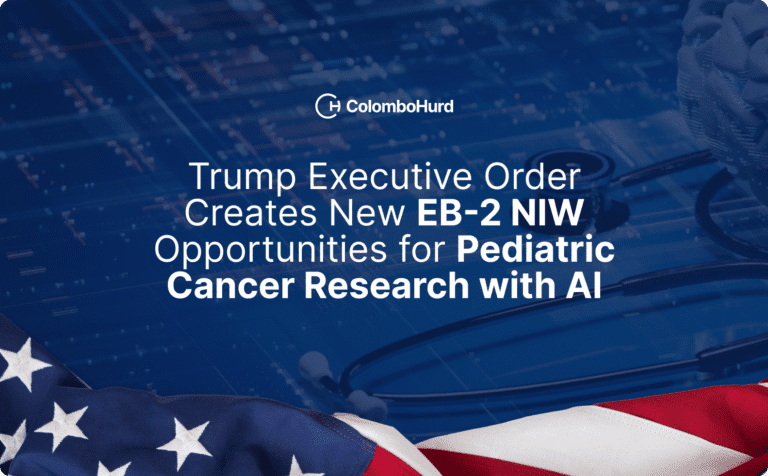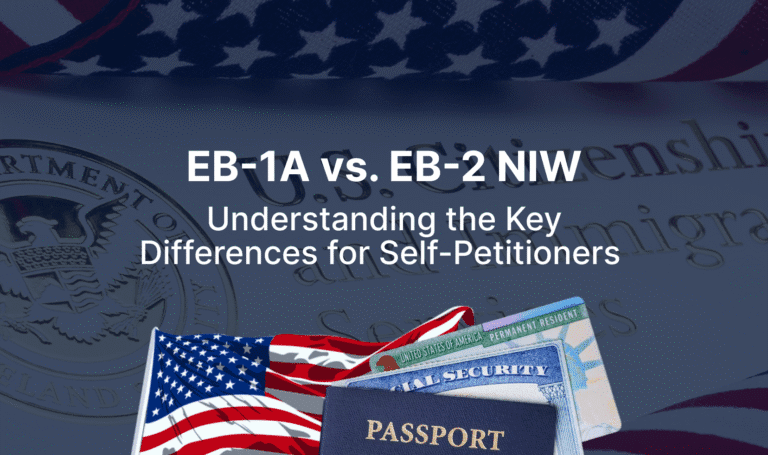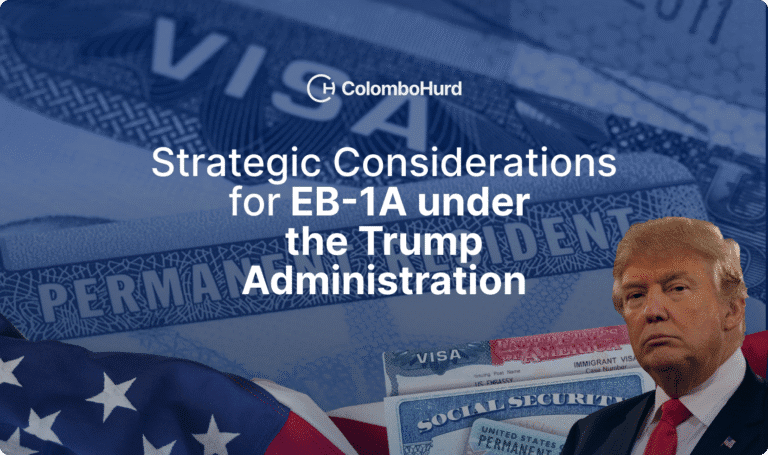On September 30, 2025, President Donald J. Trump signed the Executive Order “Unlocking Cures for Pediatric Cancer with Artificial Intelligence,” establishing AI-driven pediatric cancer research as a national priority. The Order directs federal agencies and private partners to accelerate research and empower clinicians and researchers with the tools to translate data into improved diagnoses, treatment, and cures.
In the context of U.S. immigration policy, this development opens new opportunities for professionals seeking classification under the EB-2 National Interest Waiver (NIW) and other employment-based categories. By affirming the national importance of work in AI, medical research, data science, and biotechnology, the Order provides strong policy support for applicants seeking to demonstrate eligibility under the EB-2 NIW.
Understanding the Executive Order
Pediatric cancer remains the leading cause of disease-related death among children in the United States, with incidences increasing significantly over the past four decades. Traditional treatment has seen limited progress, highlighting the need for new and innovative approaches.
To address this, the Executive Order calls for the use of artificial intelligence to drive advancements in pediatric cancer care. It builds on federal efforts, such as the Childhood Cancer Data Initiative (CCDI), which collects and integrates pediatric cancer data to accelerate breakthroughs, and it encourages greater collaboration between public and private sectors.
The Order mobilizes agencies, including the Department of Health and Human Services (HHS), National Institutes of Health (NIH), and the Make America Healthy Again (MAHA) Commission to accelerate AI-driven medical research and infrastructure.
Key Provisions of the Executive Order
The Order directs federal agencies to:
- Invest in AI-Driven Biomedical Innovation:
Enhance research infrastructure and accelerate AI integration in cancer data analysis.
- Fund Research with National Cancer Institute (NCI)-Designated Centers:
Prioritize projects involving predictive analytics, multi-omics research, and therapeutic optimization.
- Advance Data Sharing and Interoperability:
Improve access to privacy-protected clinical datasets to support research and clinical trial recruitment.
- Promote Public-Private Collaboration:
Encourage biotechnology firms, digital health companies, and AI startups to contribute tools and solutions.
- Strengthen U.S. Leadership in Health Technology:
Position the United States as a global center for AI-enabled medical discovery.
How the Executive Order Supports EB-2 NIW Petitions
The EB-2 NIW allows foreign nationals with advanced degrees or exceptional ability to self-petition for permanent residency without requiring an employer sponsor or labor certification. Petitioners must demonstrate that their work serves the national interest of the United States. In recent years, the “national importance” element has become the area USCIS most consistently challenges in these petitions, requiring substantial documentation and strategic argumentation to overcome increased scrutiny.
The new Executive Order provides a new, powerful avenue to define the national importance of the work of professionals in AI, Data Science, Oncology Research, Biotechnology, and other related fields. It establishes clear and direct policy evidence that:
- AI research and applications in healthcare are strategic national priorities.
- Pediatric cancer innovation is a public health objective of the United States.
- AI and data science professionals, not only medical doctors, contribute to national healthcare goals.
- There is a national interest in attracting and retaining advanced researchers and AI innovators.
Fields Strengthened by the Executive Order
The Executive Order has implications across numerous professional fields, offering a powerful pathway to articulate and align their work with the national policy priority.
| Field | Examples |
| Artificial Intelligence | Machine learning researchers, AI engineers building healthcare tools |
| Biomedical Research | Cancer biologists, immunotherapy and drug discovery scientists. |
| Health Data Analytics | Bioinformaticians, clinical data scientists, data architects. |
| Medical Innovation | Digital diagnostics developers, AI-enabled imaging specialists. |
| Clinical Practice | Pediatric oncologists, hematology researchers. |
| Computational Sciences | Predictive modeling experts, cloud computing in healthcare. |
| Biotechnology | Translational researchers, precision medicine developers. |
Professionals in these fields can align their EB-2 NIW petitions with the Executive Order by demonstrating how their work can contribute to advancing AI innovation and data science to improve pediatric oncology diagnostic, treatment and cure in line with the goal of the Order.
EB-2 NIW Strategy: Building a Strong Legal Case
While the Executive Order sets the policy context, working in the implicated fields alone does not automatically establish the requisite national importance. Petitioners must still establish eligibility under the three-prong framework set forth in Matter of Dhanasar: (1) the proposed endeavor has substantial merit and national importance, (2) the petitioner is well positioned to advance the endeavor, and (3) it would benefit the United States to waive the job offer and labor certification requirements.
While the Executive Order provides a favorable policy backdrop for demonstrating national importance of the work related to advancing pediatric oncology care through AI, it is still crucial to present clear and detailed plans and strategies for implementing this work.
Defining a Clear, Specific and Innovative Proposed Endeavor
USCIS frequently denies NIW cases when the proposed endeavor is broad or vague. Under this Executive Order, general statements like “I will use AI to improve cancer research” are not enough. The petitioner must describe a specific, credible plan of work that aligns with the U.S. priorities. Examples include:
- Developing AI tools to improve early diagnosis of pediatric brain tumors
- Designing predictive analytics to optimize pediatric chemotherapy dosing
- Building data platforms facilitating nationwide pediatric cancer trials
- Developing machine learning tools for rare childhood cancer genomics
Petitioners should be able to describe what they will do, how they will do it, and why it represents an advancement in a field recognized as a U.S. national priority in a detailed yet concise manner.
Demonstrating Record of Success with a Broad Impact
Recent USCIS trends place increasing emphasis on whether the petitioner has a demonstrated record of success that has contributed to the broader advancement of their field. While the list below does not represent rigid requirements, strong evidence of broad impact may include:
- Published, peer-reviewed research demonstrating impact on the field
- Adoption or replication of Proven AI or data science models by others in the healthcare field
- Roles held in collaborative or interdisciplinary initiatives related to pediatric oncology or AI in healthcare
- Presentations or invited talks at conferences
- Letters from recognized experts in AI, oncology, or medical research attesting to the influence and the widespread dissemination of the work
Presenting Concrete Plans for Advancing the Proposed Endeavor in the U.S.
USCIS has increasingly focused on the feasibility and scalability of the proposed endeavor. Petitioners must present credible, detailed plans showing how their work will be implemented and scaled within the United States. Examples of strong evidence of concrete plans include:
- A clear, step-by-step plan for collaborating with U.S.-based institutions and organizations in the field of developing AI or data solutions to advance oncology research
- Letters from institutions and organizations in the field expressing interest in collaborating with you to develop AI solutions that advance oncology research
- Specific mechanisms for broad dissemination of your work such as professional presentations and open-source initiatives
- Resource support from institutions and organizations demonstrating the feasibility of expanding the work
- Recognition by U.S. experts or professional organizations through letters validating your ability to contribute to the advancement of the fields in the United States
Key Takeaways
The Executive Order has explicitly recognized AI-driven innovation and health data modernization as national priorities. In the immigration context, the Order establishes a powerful policy backdrop that opens a new strategic pathway for EB-2 NIW petitioners working at the intersection of medical research, AI and data science by providing a clear framework for demonstrating national importance in these fields.
As the United States advances its leadership in medical innovation, it will increasingly rely on researchers, engineers, physicians, bioinformaticians and technologies capable of delivering measurable impact. The Order’s integration of AI, health data, and biomedical research makes interdisciplinary expertise a strategic advantage, positioning such candidates as valuable to U.S. national interests.
Those developing AI solutions that improve patient outcomes, accelerate cancer discovery, or advance the integration of health data can now benefit from both a national mission and policy environment that recognize the significance of their work.
Are you a highly skilled professional, researcher, or expert working in AI, healthcare, data science, or an emerging technology field? Our EB-2 NIW legal team helps innovative professionals present their work as being in the national interest of the United States. Get your free EB-2 NIW visa profile evaluation today.




